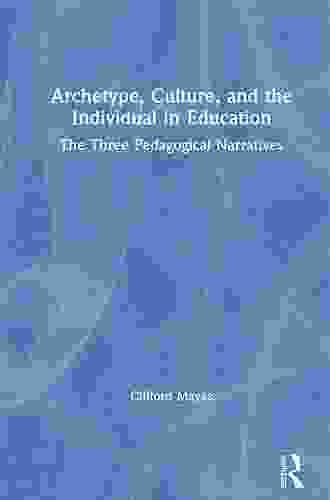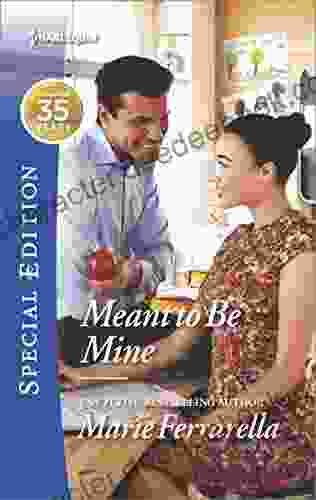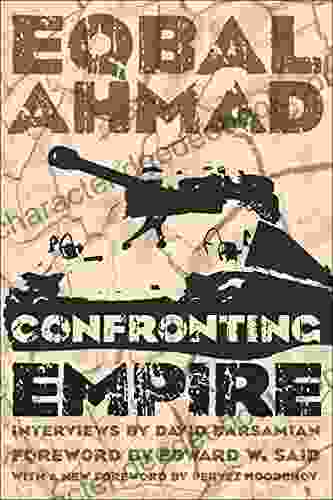The Three Pedagogical Narratives: A Comprehensive Exploration

Education, the cornerstone of societal progress, has evolved through various pedagogical narratives, each shaping the way knowledge is imparted and received. This article delves into the three dominant pedagogical narratives: the transmission, apprenticeship, and developmental narratives. By examining their historical roots, underlying principles, strengths, and limitations, we gain a deeper understanding of how these narratives continue to influence educational practices and student learning outcomes.
The Transmission Narrative: Imparting Knowledge from Master to Student

5 out of 5
| Language | : | English |
| File size | : | 973 KB |
| Text-to-Speech | : | Enabled |
| Enhanced typesetting | : | Enabled |
| Word Wise | : | Enabled |
| Print length | : | 211 pages |
| Screen Reader | : | Supported |
| X-Ray for textbooks | : | Enabled |
The transmission narrative, rooted in ancient traditions, views education as a linear process of knowledge transfer from an authoritative source, typically a teacher or expert, to passive recipients, primarily students. This narrative assumes that knowledge is objective, unchanging, and can be explicitly transmitted through lectures, textbooks, and other didactic methods.
Strengths:
- Efficient transmission of information and established knowledge
- Clear delineation of teacher and student roles
- Suitable for imparting factual knowledge or specific skills
Limitations:
- Passive nature of learning limits student engagement and critical thinking
- Emphasis on memorization rather than comprehension and application
- May not foster student autonomy and lifelong learning skills
The Apprenticeship Narrative: Learning from Experts through Hands-on Experience

The apprenticeship narrative, with roots in medieval guilds, emphasizes learning through observation, imitation, and participation. It involves a close mentorship relationship between an experienced practitioner (master) and a novice learner (apprentice). The master provides guidance, demonstrations, and feedback as the apprentice gradually acquires skills and knowledge through practical experiences.
Strengths:
- Immersive and experiential learning fosters deep understanding and practical competence
- Provides opportunities for personalized guidance and individualized feedback
- Bridges the gap between theory and practice, preparing students for real-world applications
Limitations:
- Relies heavily on the availability and expertise of skilled mentors
- May limit exposure to broader perspectives or theoretical foundations
- Can be time-consuming and may not be suitable for all subject areas
The Developmental Narrative: Focusing on Student Growth and Individualized Learning

The developmental narrative, emerging from progressive education movements, prioritizes student-centered learning and recognizes the unique developmental trajectory of each individual. It views learning as an active, constructive process where students actively engage with their environment, explore concepts, and develop their own understanding.
Strengths:
- Promotes intrinsic motivation, critical thinking, and problem-solving skills
- Individualized instruction tailored to student needs and interests
- Fosters lifelong learning and adaptability to changing environments
Limitations:
- Can be challenging to implement in large and diverse classrooms
- Requires well-trained and supportive teachers
- May not be suitable for all subject areas or learning objectives
Blending Narratives for Effective Education
In contemporary educational contexts, educators often blend aspects of these pedagogical narratives to create multifaceted and effective learning environments. For instance, a teacher may utilize transmission methods to convey essential information, incorporate apprenticeship-style projects for hands-on experience, and provide opportunities for developmental growth through inquiry-based learning.
By understanding the strengths and limitations of each narrative, educators can make informed choices and design learning experiences that meet the diverse needs of their students. Moreover, ongoing reflection and research on pedagogical practices help refine and adapt these narratives to the ever-evolving demands of education.
The three pedagogical narratives - transmission, apprenticeship, and developmental - provide a framework for understanding the historical evolution and diverse approaches to education. Each narrative offers unique strengths and limitations, shaping the way knowledge is imparted and received. By blending and adapting these narratives, educators can create engaging and effective learning environments that foster student growth, critical thinking, and lifelong learning skills.
As we continue to explore the complexities of education, the interplay of these pedagogical narratives will undoubtedly influence and inform educational practices for generations to come.
5 out of 5
| Language | : | English |
| File size | : | 973 KB |
| Text-to-Speech | : | Enabled |
| Enhanced typesetting | : | Enabled |
| Word Wise | : | Enabled |
| Print length | : | 211 pages |
| Screen Reader | : | Supported |
| X-Ray for textbooks | : | Enabled |
Do you want to contribute by writing guest posts on this blog?
Please contact us and send us a resume of previous articles that you have written.
 Book
Book Page
Page Text
Text Genre
Genre Reader
Reader Library
Library Paperback
Paperback Sentence
Sentence Shelf
Shelf Glossary
Glossary Synopsis
Synopsis Scroll
Scroll Codex
Codex Tome
Tome Bestseller
Bestseller Classics
Classics Narrative
Narrative Biography
Biography Autobiography
Autobiography Memoir
Memoir Reference
Reference Dictionary
Dictionary Thesaurus
Thesaurus Narrator
Narrator Character
Character Resolution
Resolution Borrowing
Borrowing Stacks
Stacks Periodicals
Periodicals Study
Study Research
Research Scholarly
Scholarly Academic
Academic Journals
Journals Reading Room
Reading Room Rare Books
Rare Books Literacy
Literacy Dissertation
Dissertation Reading List
Reading List Theory
Theory S Block
S Block George Ritzer
George Ritzer Iain Gale
Iain Gale Andy Read
Andy Read Hasna Sal
Hasna Sal David Colton
David Colton Albertina Grimes
Albertina Grimes Michael Robinson
Michael Robinson Robert Kay
Robert Kay Casey Reece
Casey Reece Mark Eisner
Mark Eisner Alydia Rackham
Alydia Rackham Jacqueline Leckie
Jacqueline Leckie Edward H Julius
Edward H Julius Mark Prince
Mark Prince Anita Virgil
Anita Virgil Nancy Fichtman Dana
Nancy Fichtman Dana Bonita M Kolb
Bonita M Kolb Aleksandr Shulginov
Aleksandr Shulginov Richard M Perloff
Richard M Perloff
Light bulbAdvertise smarter! Our strategic ad space ensures maximum exposure. Reserve your spot today!

 Junot DíazThe Insurrection in Poland: An Eyewitness Account of the Recent Traveller Re...
Junot DíazThe Insurrection in Poland: An Eyewitness Account of the Recent Traveller Re...
 Steven HayesYou Can Trust The Conservatives To Be Conservatives: A Comprehensive Guide to...
Steven HayesYou Can Trust The Conservatives To Be Conservatives: A Comprehensive Guide to...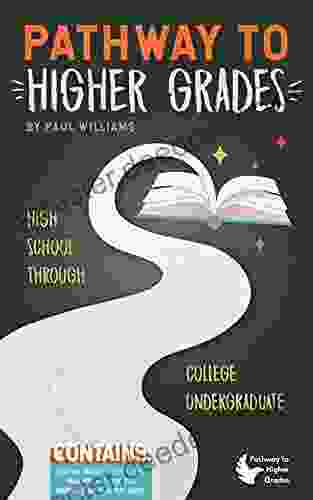
 Michael ChabonHigh School Through College Undergraduate: A Guide to the Educational Journey
Michael ChabonHigh School Through College Undergraduate: A Guide to the Educational Journey Andy HayesFollow ·2.2k
Andy HayesFollow ·2.2k Gary CoxFollow ·16k
Gary CoxFollow ·16k Morris CarterFollow ·10.5k
Morris CarterFollow ·10.5k Alvin BellFollow ·7.3k
Alvin BellFollow ·7.3k Leon FosterFollow ·10.6k
Leon FosterFollow ·10.6k Salman RushdieFollow ·11.9k
Salman RushdieFollow ·11.9k Houston PowellFollow ·16.1k
Houston PowellFollow ·16.1k Hamilton BellFollow ·14.7k
Hamilton BellFollow ·14.7k
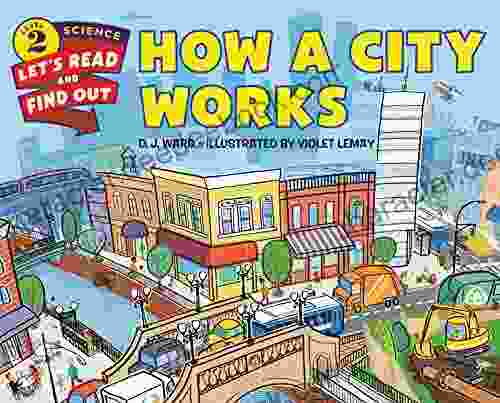
 Ronald Simmons
Ronald SimmonsHow Do Cities Work? Let's Read and Find Out!
Cities are...

 Tom Clancy
Tom Clancy25th European Symposium on Research in Computer Security...
<p>Guildford,...

 Lawrence Bell
Lawrence BellHow We Decide: Cognitive Behavior in Organizations and...
Organizations are...
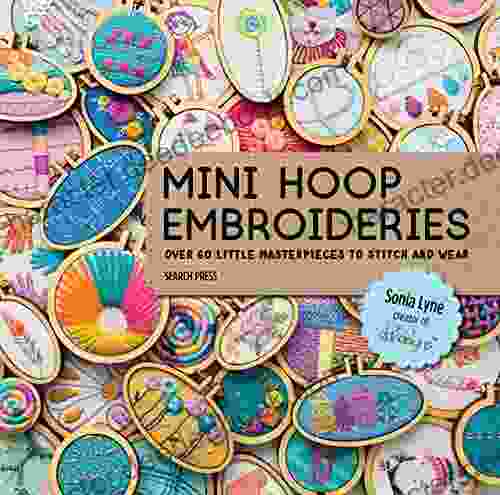
 E.M. Forster
E.M. ForsterOver 60 Little Masterpieces To Stitch And Wear:...
Embark on a Creative...

 Douglas Foster
Douglas FosterUnveiling the Educational Treasure: CGP KS2 Geography:...
In the ever-evolving educational...
5 out of 5
| Language | : | English |
| File size | : | 973 KB |
| Text-to-Speech | : | Enabled |
| Enhanced typesetting | : | Enabled |
| Word Wise | : | Enabled |
| Print length | : | 211 pages |
| Screen Reader | : | Supported |
| X-Ray for textbooks | : | Enabled |


